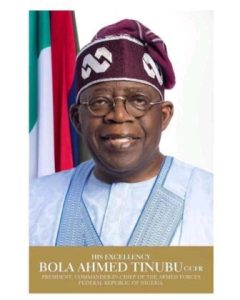
Nigeria’s Oil and Gas Industry Was Revived by One Man in Just Two Years: Tinubu’s Oil Miracle. CONTINUE FULL READING>>>>>
Nigeria’s oil and gas industry was in crisis two years ago; it was crippled by oil theft, weakened by corruption, stymied by the weight of subsidies, and mainly deserted by serious investors. Today, the same sector is making a spectacular resurgence under President Bola Ahmed Tinubu’s audacious and astute leadership.
This is a revolution, not merely change. For many years, Nigeria’s largest economic liability was the fuel subsidy, which cost the country N3.6 trillion a year, enriched cartels, and provided little assistance to regular people. An important turning point was reached when President Tinubu decided to remove the subsidy. That audacious decision, which previous governments had long shunned, instantly cleared the budget, boosted market confidence, and opened the door for focused expenditures in energy, infrastructure, and innovation.
WINNING THE WAR ON OIL THEFT
The Tinubu administration’s revived and successful fight against oil theft is arguably its most important but underreported accomplishment. Nigeria used to lose an astounding 400,000 barrels of crude oil every day, which devastated its revenue and turned off investors.
Today, by carefully combining: Cutting-edge monitoring tools, improved security operations through a redesigned Joint Task Force, involvement of stakeholders and local communities, swift prosecution of offenders, and a sharp decline in oil theft, which has restored crucial export volumes and industry trust. Once idled by sabotage, pipelines are now operational again, and crude oil is once again being evacuated.
PRODUCTION UP, CONFIDENCE RESTORED
After falling below 1 million barrels per day, Nigeria’s crude oil production has recently increased to 1.5 million barrels per day, and growth is expected to continue. The increase in gas exports from $5.84 billion to $8.66 billion indicates a boost in investor confidence and increased operational effectiveness
REDUCING IMPORTS, INCREASING INVESTMENTS
Nigeria has cut its petroleum imports by more than $4 billion because to strategic private sector partnerships, most notably the Dangote Refinery’s commissioning. At the same time, yearly investments in the oil and gas industry have nearly tripled in just two years, rising from $6 billion to $17 billion.
There is a reason for this leap. It is the outcome of well-thought-out, sequential reforms that are supported by a distinct presidential vision.
THE CNG TRANSFORMATION
Nigeria has bravely embraced compressed natural gas (CNG) under Tinubu, bringing about a quiet revolution in clean energy transportation. Within two years: The number of CNG stations has increased from less than 10 to 248; the number of CNG vehicles has increased from less than 1,000 to more than 100,000. A nationwide drive for cleaner, more affordable, and sustainable fuel choices has replaced what was previously a policy afterthought.
NNPCL: A NEW ERA OF LEADERSHIP
A rejuvenated and restructured Nigerian National Petroleum Company Limited (NNPCL) is at the center of this transformation. Tinubu oversaw a reorganization of the management and the appointment of “the most competent leadership team in NNPCL history,” according to industry analysts.
The new leadership, which consists of professionals with a commitment to reform and globally renowned technocrats, has: Improved corporate governance and transparency, streamlined processes for increased productivity and profitability, NNPCL was repositioned as a reliable partner for international investors. For the first time in many years, NNPCL is no longer the focus of controversy but rather a representation of change. Two public refineries are now operational following years of broken promises and fictitious turnarounds. Production is still going on. Nigeria is once again improving, not in theory but in practice. In the fight for domestic energy security that has lasted for decades, this is a turning point.
WHY THIS IS NOW OCCURRING This comeback is the result of deliberate leadership, not chance. Among the important policy levers are: Three revolutionary Executive Orders that eliminated long-standing bureaucratic obstacles, Eliminating fuel subsidies allowed trillions to be invested in actual projects. Realigning FX dynamics, the Naira-for-Crude proposal, Anchoring regional energy finance, Nigeria is hosting the $5 billion African Energy Bank. Shell has committed $5 billion to the Bonga North Deepwater Project. the transformation of NNPCL into a performance-based organization run by professionals.
THE VERDICT: RENEWED HOPE DELIVERED As President Tinubu celebrates his second year in office, the facts are more persuasive than any catchphrase. Once viewed as a warning about lost opportunities, Nigeria’s oil and gas industry is now a case study in turnaround leadership.CONTINUE FULL READING>>>>>
